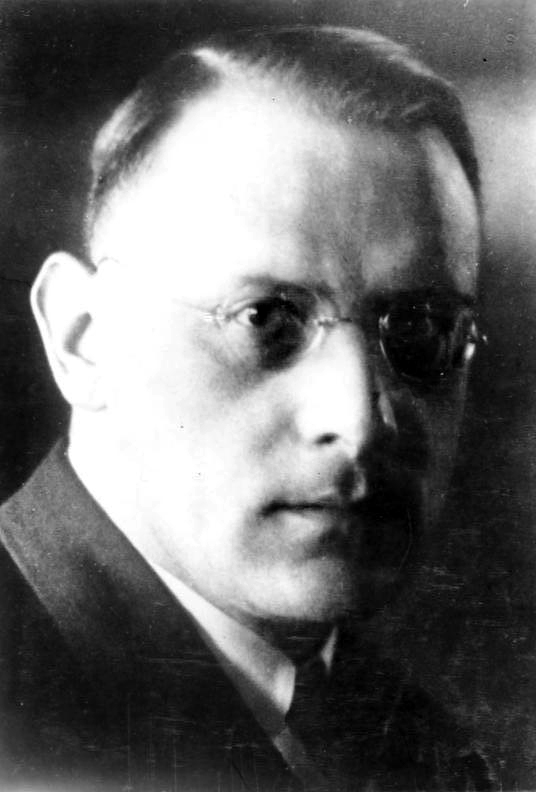Hans Friedrich Karl Günther (Freiburg, 16 February 1891 – Freiburg, 25 September 1968) was a German writer, an advocate of scientific racism and a eugenicist in the Weimar Republic and the Third Reich. He was also known as "Rassengünther" ("Race Günther") or "Rassenpapst" ("Race Pope"). He is considered to have been a major influence on Nazi racialist thought.
He received several honors during the Third Reich, notably in 1935 he was declared "pride of the NSDAP" for his scientific work. In the same year he received the Rudolph Virchow plaque, and in 1940 the Goethe Medal for arts and science from Hitler. In March 1941, he was received as an honored guest for the opening conference of Alfred Rosenberg's Institute for Research on the Jewish Question "Institute for the Study of the Jewish Question". At the conference the obliteration of Jewish identity, or "people death" (Volkstod) of the Jews was discussed. Various proposals were made, including the "pauperization of European Jews and hard labor in massive camps in Poland". Günther's only recorded comment was that the meeting was boring.
After World War II, Günther was placed in internment camps for three years until it was concluded that, though he was a part of the Nazi system, he was not an instigator of its criminal acts, making him less accountable for the consequences of his actions. The University of Freiburg came to his defense at his post-war trial. Nevertheless, even after Nazi Germany's fall, he did not revise his thinking, denying the Holocaust until his death. In 1951 he published the book How to choose a husband in which he listed good biological qualities to look for in marriage partners. He continued to argue that sterilization should remain a legal option, and played down the mandatory sterilization used in Nazi Germany. Another eugenics book was published in 1959 in which he argued that unintelligent people reproduce too numerously in Europe, and the only solution was state-sponsored family planning.




